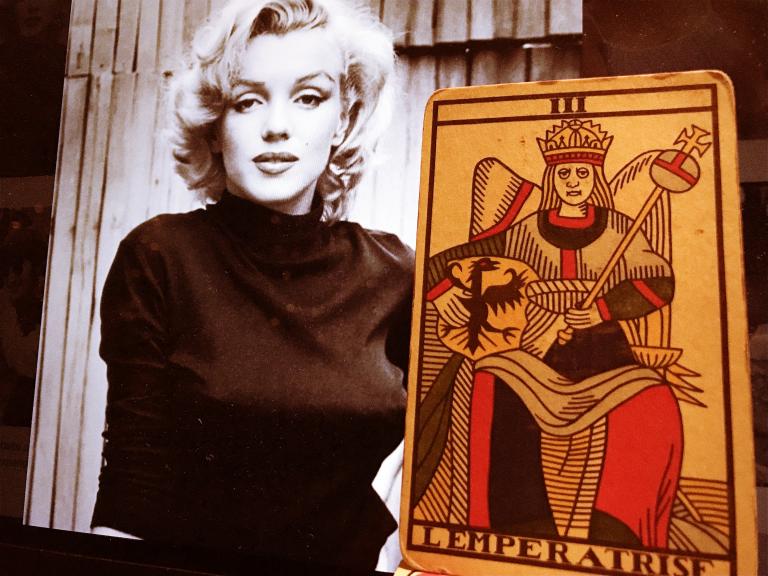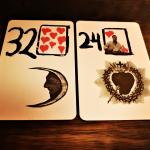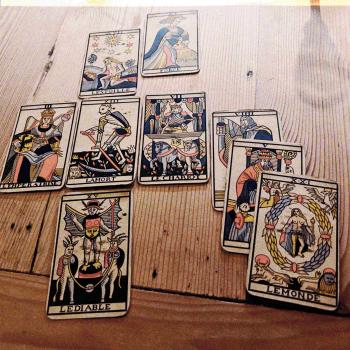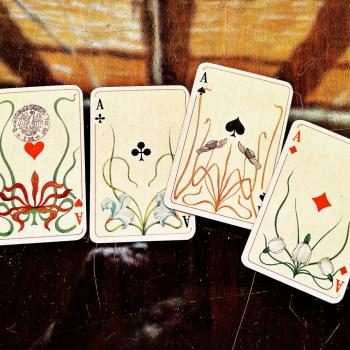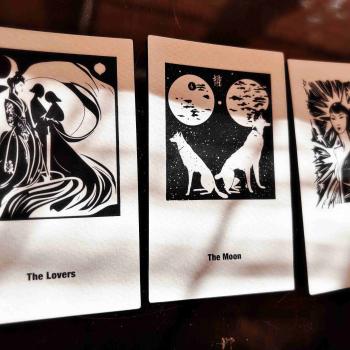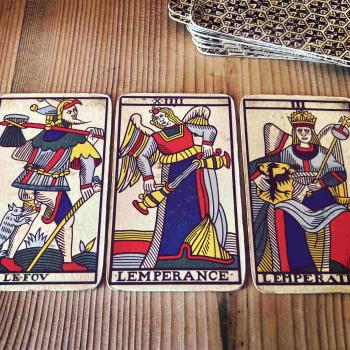Any look at a visual text is done in context and based on a personal story. Looking at the tarot cards even without a question in mind will still elicit a question.
You will want to know what the Empress ‘means’, and why she sits there pouting, reminding you of Marilyn Monroe or some other celebrity.
But you see, this look for meaning is not really a look for the meaning of the card as it has been established in the context of occult and esoteric systems. Rather, the meaning you’re looking for is one that consists of instruction and inspiration towards what you yourself can do, or how you yourself feel.
While action can be motivated by significance, meaning is situational. This means that action and meaning are not on the same par.
You need instruction because it helps you navigate the terrain for how to solve a problem. Inspiration helps you solve it in your own way.
So ‘meaning’ is actually nothing but a question.
Think of that next time you read the tarot. Think about the fact that what you actually read for is always a question, and how this question leads to valuing what you learn from the visual instruction, and how well it enables you to be creative about it.
The implication of this is that it’s important to learn how to ask questions that are not clichés, simply because interesting questions help you find the right words when you want to create a coherent story about what we see, how we see it, and why. Without this capacity to transmit a message that’s derived from putting instruction and inspiration together, there’s no helpful answering of the question.
I teach this in my courses and even more so in my bi-annual series of 11 consecutive Tarot prompts. People flock to this offering because, although not a cartomantic course, it has all the ingredients that give you insight into precisely what’s at stake when you meet an interesting question head on and answer it.
For this I use an inverted method of oracular readings, which is to say that I don’t pose a question to the Tarot, but let the cards ask me a question. I let the cards instruct me and inspire me towards asking questions that are not popular, mainstream, or merely re-assuring.
The 11 days of questions are based on snappy deliveries with aplomb based on reading various cards (Tarot, Lenormand, playing cards, and art cards). Usually there’s a set theme that invites you to not only take a direct look at the cards, but also to engage directly with the ‘weird’ question that’s geared towards performing precisely the primary function of teaching: to instruct and inspire.
Here’s an example of the type of prompt that you can get from the last series run in July 2018 on the theme: Every Day is a Good Day.
I reproduce the text here, though you can also see it on the web platform I use for it, this one example being now open for the public.
Tarot prompt on July 28, 2018
As it happens, I’m in Norway for six weeks. I call this vacation, though it’s not. The only difference between working at home and working on top of a mountain is the mountain.
I step on the porch, and Avalon greets me: ‘How are you today? Is this a good day?’ I praise myself lucky, even though thunder crosses my mind.

I feel like going over to the neighboring cabin and order everyone to shut the fuck up and enjoy the clouds ascending and descending.
Five adults are also on their porch, yakking about Lord only knows, and nothing of consequence. Small talk.

How is this day a good day?
I ask the cards about it:
The Lovers, the Popess, and the Empress make an appearance.
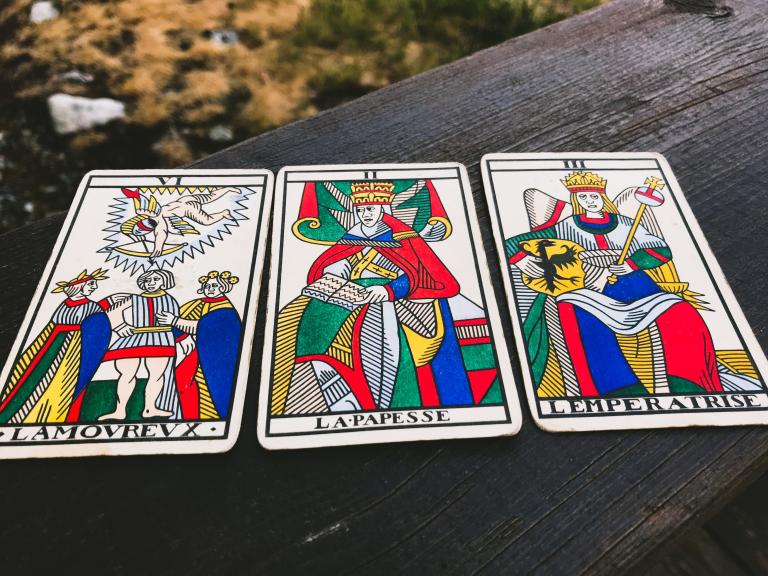
This is what I reckon: Insofar as it’s not for me to judge what other people do, I’m free of having to fill myself with frustrations.
That’s the good news.
The even better news is that if I simply observe how others conduct their lives without judgment, I may arrive at some idea that I can apply to my own routines.
Not only that, but also pass it over to others.
Here I am, writing down these thoughts about people yakking over breakfast, and suggesting how we can all reflect on the ‘benefits’ of such activities.
The cards invite you to ask these questions:
If you’re in a relationship and have others live with you, partner, children, friends, or parents, what would happen if you instituted a regime of silence over breakfast, or some other activity that involves aimless talk, or even a meeting?
What would happen if you ruled, like an Empress, that everyone keep quiet and just watch?
If you live alone, what would happen if you instituted a regime of silence where your internal chatter is concerned, haggling with yourself over what to decide, struggling with ambivalence and hesitance?
No listening to podcasts, radio, music, or the TV either.
It’s a good day when you can institute any regime, as that simply means that you have access to your sovereignty and can exercise it too in relation to the ones you happen to have dealings with.
Demonstrating discretion in relation to just what you think of small talk is also a good idea, as not all are ready to be convinced that small talk gets you nowhere – contrary to popular belief.
Most would say to you, ‘but small talk is about opportunity, and you don’t want to let any opportunity pass you by.’
Such tedious talk. Imagine the people who live according to their desire to constantly chase after opportunities. By Jove, how exhausting.
Not everything is about opportunity. Talking to others solely for the sake of imagining that there’s something in it for you doesn’t get you anywhere.
Every day is a good day when you rule wisely over the world’s differing opinions about everything, while taking a good look at yourself, saying:
‘Today I didn’t fall for this shit’.
Keep going.
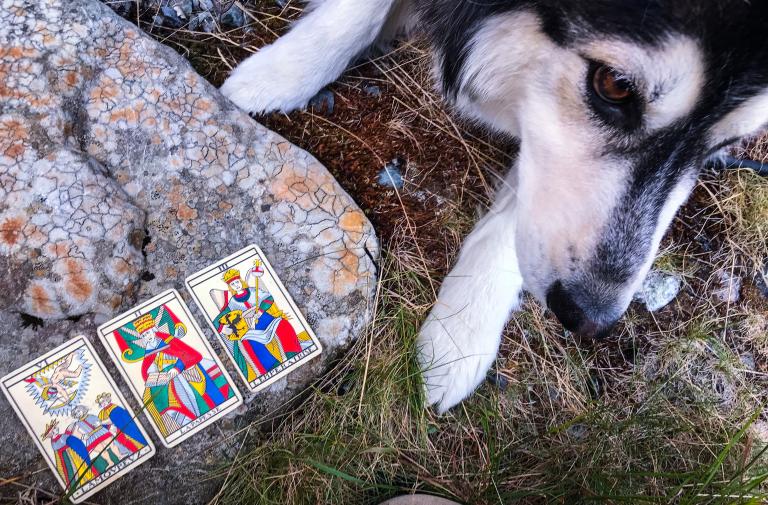
If you’re not already on it, hop onboard Aradia Academy’s Art of Reading newsletter, and receive the call for registration tomorrow. The Tarot prompts series starts already on January 10, so the registration will be open only 2 days.

